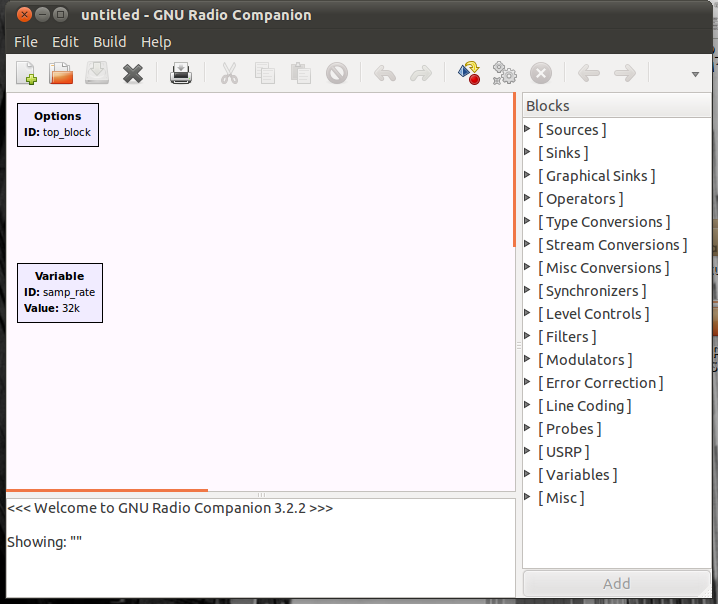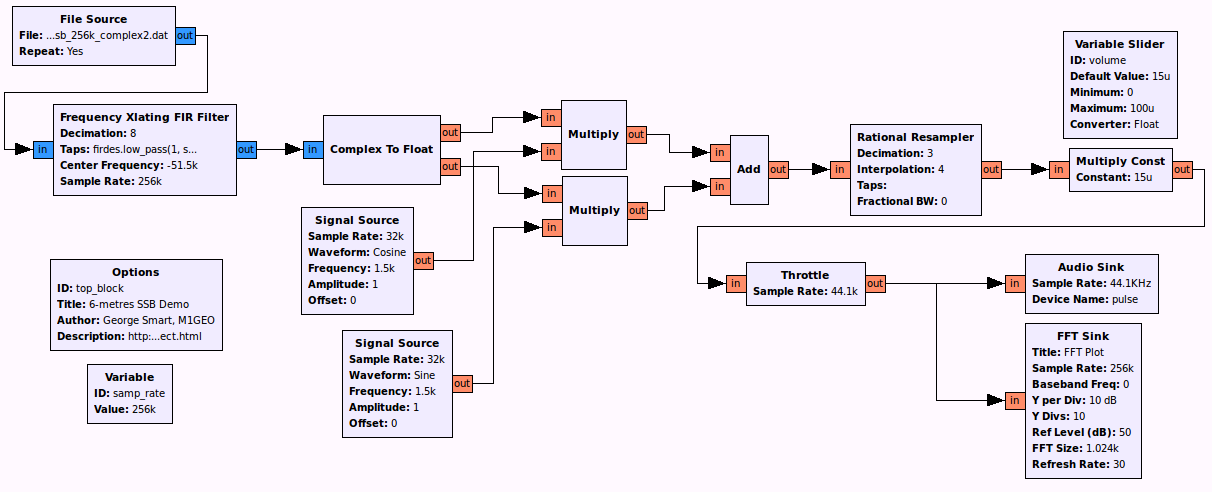This page describes my experience with GNU Radio and GRC.
Install Binaries
This page originally detailed how to build GNU Radio and GNU Radio Companion from source, but this proved very difficault for some people to follow, so this page suggests how to install the binaries instead. It is very closely based on Install GNU Radio on Ubuntu 9.10 (Karmic).
$ sudo apt-get install gnuradio gnuradio-companion
This will take a few minutes and then you will have GNU Radio & GNU Radio Companion (grc) installed.
Fire it up
When I first started GNU Radio Companion, I got the following error trace.
<<< Welcome to GNU Radio Companion 3.2.2 >>>
Error: ‘options’
>>> Failue
Traceback (most recent call last):
File “/usr/lib/python2.7/dist-packages/gnuradio/grc/gui/MainWindow.py”, line 174, in new_page
flow_graph = self._platform.get_new_flow_graph()
here – it goes on
According to this post, it is a bug relating back to this issue with Ruby. In Natty, this can be resolved by doing:
mkdir ~/.gnuradio/
touch ~/.gnuradio/config.conf
cat /etc/gnuradio/conf.d/grc.conf >> ~/.gnuradio/config.conf
Which will setup the required folder, and then put the config file in the correct place.
Once loaded, the GNU Radio Companion looks like this:
Starting Out
I have not used GNURadio before and so wanted some tutorials to see how things work. I found this website which is very very useful indeed. Having red through the tutorials on that page, it all clicked into place. Playing with GNU Radio made a lot of my DSP and SigProc courses make much more sense.
The image below shows my Lower Sideband SSB demodulator, made in GNU Radio using the Weaver method.


